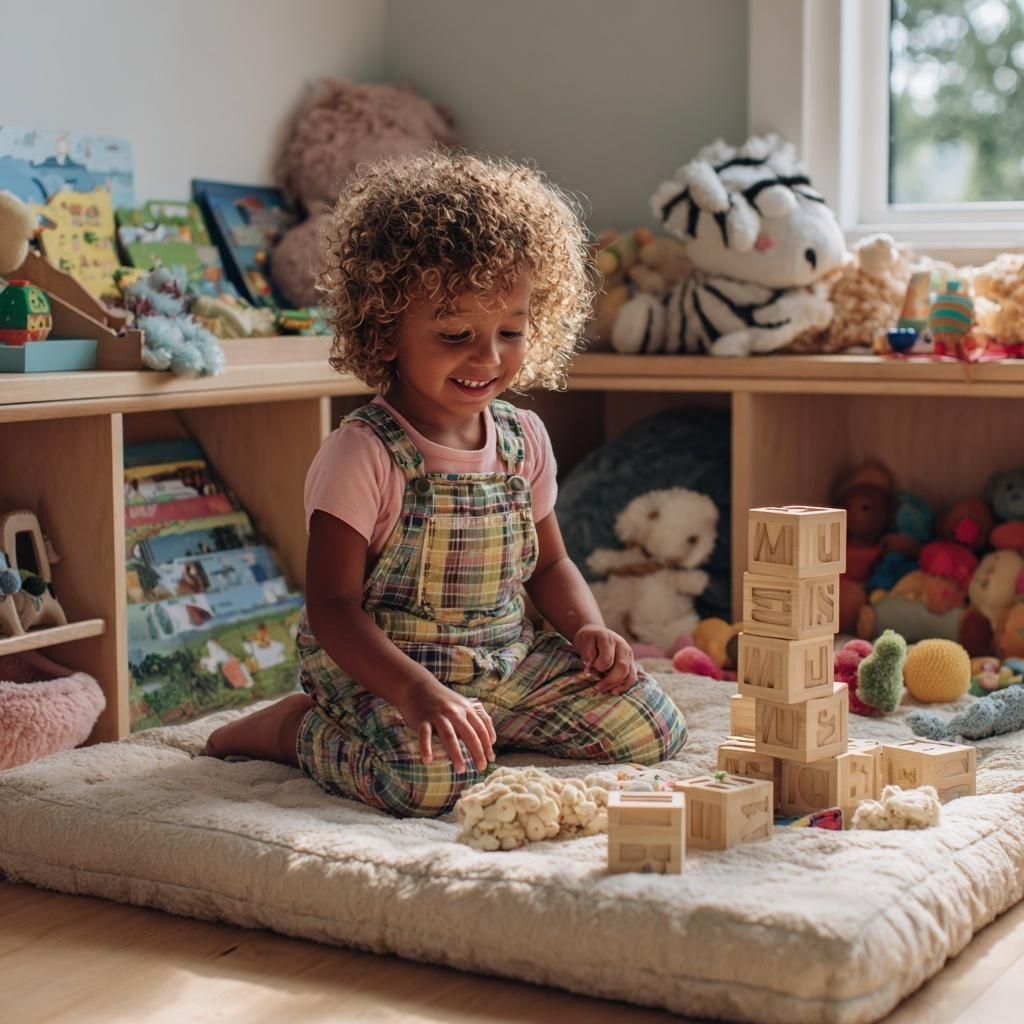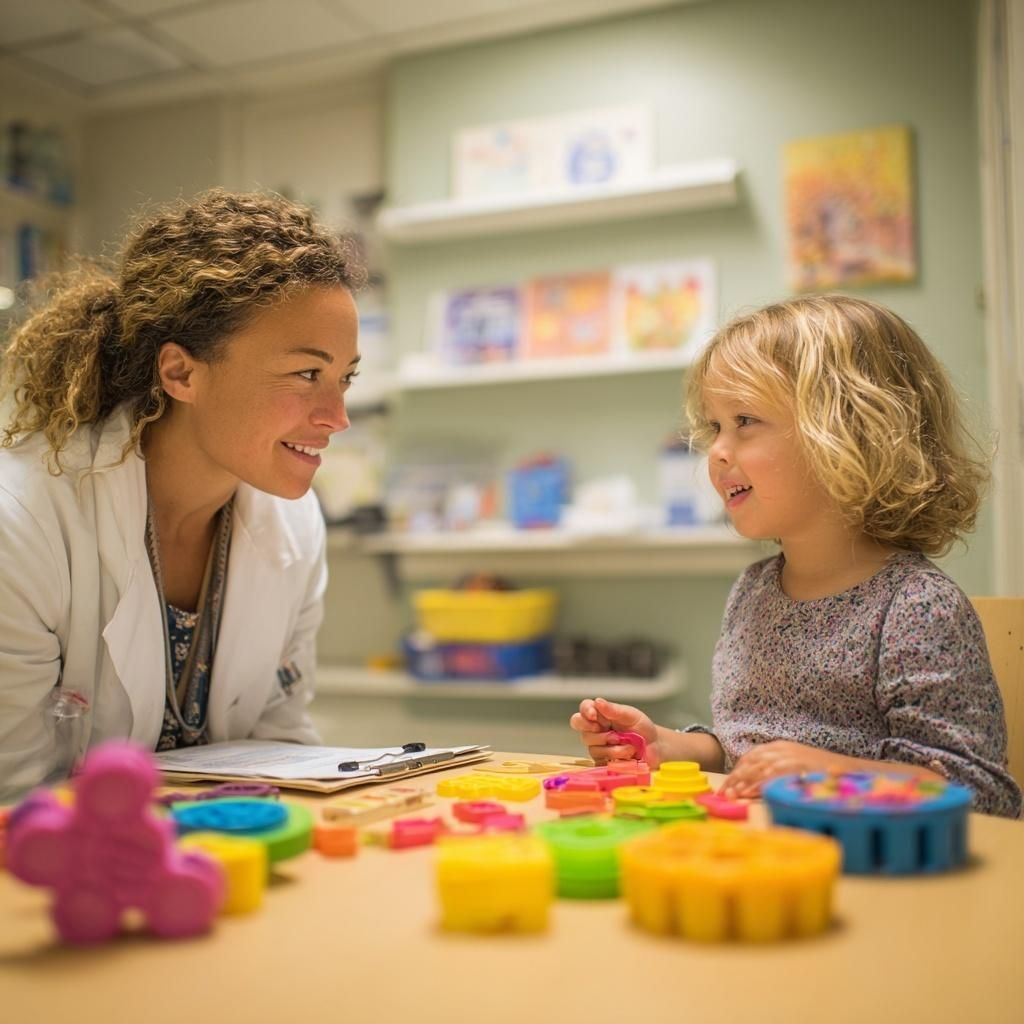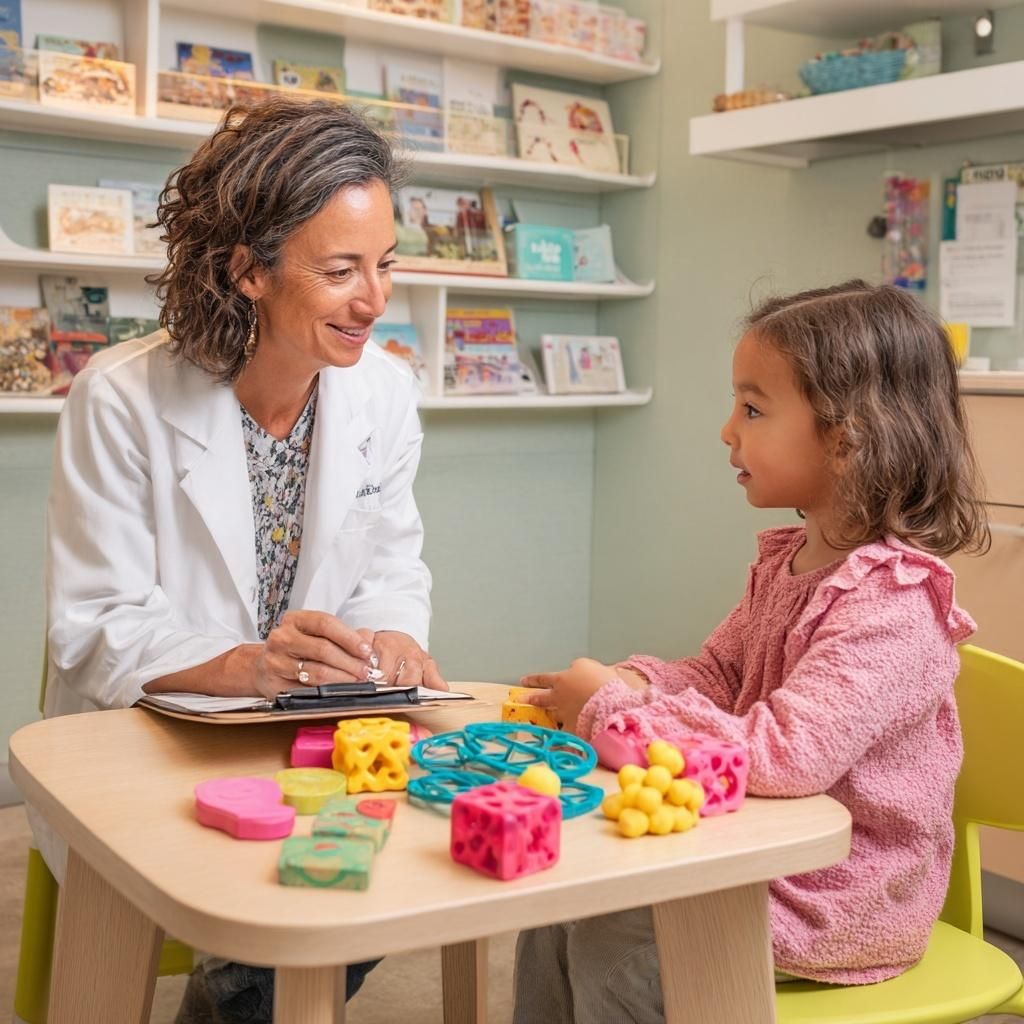How To Boost Child Development in Fort Lauderdale, FL - 9 Tips

At just 18 months, Noah was already stacking blocks with precision and babbling with delight. But at his two-year checkup, his pediatrician noticed he wasn’t making eye contact or using two-word phrases yet. His parents were surprised and worried. What did it mean? Was he falling behind?
Child development is full of moments like these. Some milestones arrive early, some late. But every parent wants to know: Is my child on track? If you’re raising a child in Fort Lauderdale, there’s good news. You’re not alone, and there are simple, research-backed ways to support your child’s growth and give them a strong foundation.
Whether it’s language development, motor skills, or social-emotional development, the early years matter. According to the CDC, a child’s brain develops faster during the first few years of life than at any other time. These years are filled with so-called developmental milestones like smiling for the first time, taking a first step, or using words to communicate.
At Manor Plaza Pediatric & General Medicine, we help families understand and support early childhood development every step of the way. Below are 9 clear, practical tips to help your child grow, learn, and thrive right here in Fort Lauderdale.
Support Physical Growth and Motor Skills

Supporting your child’s physical growth starts with understanding how they are developing, and regular check-ups play a key role in that journey.
1. Prioritize Routine Pediatric Check-Ups
Routine visits with your child’s doctor are about more than shots or height and weight checks. These appointments track your child’s growth and development across many areas; including fine and gross motor skills, language development, and behavior.
At Manor Plaza Pediatric, we use proven developmental screening tools to assess each child’s unique pace of development. We look at reflexes in infancy, balance and coordination in toddlerhood, and signs of puberty in adolescence. If something seems off, early intervention makes all the difference. Waiting too long can delay care during the most sensitive stages of brain development.
These checkups also help us build a relationship with you as parents and caregivers. We answer your questions, support your concerns, and provide guidance tailored to your child’s age and needs.
2. Encourage Safe Physical Play and Activity
Children develop best when they move. Physical activity builds strong muscles, improves coordination, and supports intellectual development. But it also boosts mental health and emotional regulation; especially during early learning years.
According to the CDC, kids between ages 3 and 5 should be active throughout the day. For those 6 and older, aim for at least 60 minutes of physical activity daily. Fort Lauderdale families can take advantage of the city’s many outdoor parks, splash pads, and bike paths to make movement fun and natural.
Encourage games that support gross motor skills like jumping, climbing, and balancing. Activities like coloring, playdough, or buttoning a shirt develop fine motor control. Both are important areas of development that your child needs to reach their full potential.
Stimulate Cognitive and Language Development

Fostering cognitive and language development starts at home, and one of the most powerful tools you can use is daily reading.
3. Read Together Daily
Reading aloud is one of the best ways to support your child’s language development and intellectual growth. When you read with your child (even for just 10 minutes a day) you expose them to new words, sentence structures, and ideas. These early experiences shape how brains are built.
Research published by the Center on the Developing Child at Harvard University shows that children who are ready to regularly develop stronger vocabularies, better memory, and more curiosity. Reading also supports verbal communication and nonverbal communication, such as pointing, facial expressions, and turn-taking.
Start with board books for infants and progress to picture books, rhyming stories, and eventually early chapter books. Fort Lauderdale’s public libraries offer free story times, book bundles by age, and even bilingual books that support sign language or dual-language households.
4. Promote Active Questioning and Exploration
Children are natural scientists. They want to know how everything works. When your child asks “why” or “how,” it’s not just curiosity; it’s brain development in action.
Encourage this by giving them space to explore. Take them to Fort Lauderdale’s Museum of Discovery and Science, try age-appropriate science experiments at home, or simply walk through your neighborhood and point out shapes, textures, and sounds.
Montessori-style activities (like sorting by color, matching shapes, or working with sand and water) help kids begin to understand cause and effect. They also support independence and confidence, which are key parts of healthy development.
Build Strong Emotional and Social Skills

Helping your child thrive socially and emotionally begins with creating strong, supportive connections at home.
5. Foster Emotional Intelligence Through Connection
Social and emotional development starts in infancy. The way you respond to your child’s emotions teaches them how to handle their own. When your toddler cries after falling, offering comfort helps them feel safe. Over time, they learn to calm themselves.
Use simple tools like emotion charts, role-play games, and bedtime check-ins to help your child name and talk about their feelings. These skills are linked to better outcomes in school and relationships, according to the American Psychological Association.
Don’t expect perfection; kids will still throw tantrums. But each time you respond with calm and connection, you’re strengthening their stress response and helping them build emotional strength.
6. Encourage Social Interaction With Peers
Playing with others teaches kids how to share, cooperate, and solve problems. Whether your child is 3 or 13, spending time with peers is an important part of child development.
Consider enrolling your child in a local preschool, community center classes, or weekly playgroups. The YMCA of South Florida and Fort Lauderdale Parks and Recreation offer many affordable programs designed for infants and children up to age 12.
At home, practice turn-taking games and talk through disagreements with simple phrases like “Let’s take turns” or “Can we fix this together?” These moments help kids develop competence, empathy, and stronger relationships as they grow.
Support Healthy Routines and Environment

Creating healthy routines and a supportive environment lays the foundation for your child’s overall well-being and daily success.
7. Establish a Consistent Sleep and Meal Schedule
Routines support optimal development. Regular sleep and mealtimes regulate your child’s internal clock and reduce stress. Lack of sleep or irregular meals can impact attention, mood, and even growth.
Children under 5 years old need 10 to 13 hours of sleep per night, including naps. School-age children need 9 to 12 hours. Stick to a calming bedtime routine: bath, books, soft music, and lights out.
Nutrition matters too. Meals rich in whole grains, protein, fruits, and vegetables support both physical and mental growth. Limit sugar and processed foods, which have been linked to behavioral issues and poor concentration.
8. Limit Screen Time and Offer Enriching Alternatives
Screens are everywhere, but too much screen time can interfere with sleep, language development, and focus. The CDC recommends no screen time for children under 18 months, and no more than 1 hour per day for kids aged 2 to 5.
Instead, fill your child’s day with real-world experiences. Visit local attractions like Secret Woods Nature Center or enroll in a hands-on art or dance class. Choose activities that allow them to interact with the world around them.
When screens are used, choose high-quality educational content and watch together. Avoid using screens to soothe tantrums or replace face-to-face interactions.
Leverage Community and Professional Resources

Supporting your child’s development also means knowing when to seek guidance and where to find the right help.
9. Collaborate with Pediatric Experts and Educators
You don’t have to figure everything out alone. Your pediatrician, early educators, and child development specialists are your partners in ensuring your child’s success.
At Manor Plaza Pediatric, we help track developmental milestones, answer your questions, and provide referrals when needed. Whether you’re concerned about speech, social behavior, or fine motor skills, we’re here to support your child’s growth at every stage.
Don’t wait until a problem becomes serious. If you feel something isn’t right, trust your instincts. Early help gives children the best chance to overcome delays and thrive.
Developmental Milestones by Age
| Age Range | Common Developmental Milestones |
|---|---|
| Birth–6 months | Smiling, rolling over, babbling, reaching for objects |
| 6–12 months | Sitting, crawling, responding to name, starting to stand |
| 12–24 months | Walking, saying simple words, following simple instructions |
| 2–3 years | Speaking in short sentences, sorting shapes and colors |
| 3–5 years | Playing cooperatively, retelling simple stories, hopping on one foot |
| 6–12 years | Reading and writing, forming friendships, increased independence |
Frequently Asked Questions
1. Why is child development important?
Child development helps shape a person’s ability to think, feel, and interact. Early experiences and care can affect brain wiring, learning ability, and emotional regulation throughout life.
2. What are the 5 C's of child development?
The 5 C’s; Competence, Confidence, Connection, Character, and Caring—reflect the key traits that support positive youth development and success into adulthood.
3. What are the 5 pillars of youth development?
They include Education, Health and Nutrition, Safety and Child Protection, Participation, and Skills Development. Together, these support overall well-being and prepare youth for adulthood.
4. What is the most important part of child development?
Early childhood, especially the first three years, is the most sensitive time for brain development. Strong relationships and enriching experiences during this stage are critical.
5. What is best for child development?
Stable relationships with caregivers, regular pediatric care, physical activity, good nutrition, and early learning opportunities are some of the best supports for children’s growth.
Conclusion
Every child develops at their own pace, but early support makes a big difference. From routine checkups to daily reading and active play, small steps add up. Fort Lauderdale offers a wealth of opportunities to support your child’s growth; and Manor Plaza Pediatric is here to help guide you.
Take the next step today. Schedule your child’s developmental check-up and give them the support they need to reach their full potential. For more information call our office to book your appointment.




